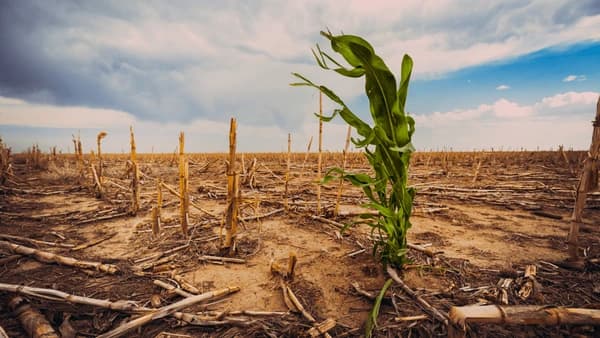
Climate change is no longer a distant threat — it is a present reality that affects millions worldwide. While its consequences are felt globally, developing countries bear the brunt of rising temperatures, extreme weather events, and shifting ecosystems. These changes directly impact human health and nutrition, making it harder for communities to survive and thrive.
Сlimate change is reshaping life in regions that are already vulnerable due to economic instability and limited resources. This article explores how environmental shifts affect health and nutrition, highlighting the challenges faced by developing countries and the urgent need for action.
Rising Temperatures and the Spread of Disease
One of the most immediate ways climate change affects health is by increasing the spread of infectious diseases. Warmer temperatures create ideal conditions for mosquitoes, allowing diseases like malaria and dengue fever to spread more easily. In parts of Africa, Asia, and Latin America, areas that were previously too cool for mosquito-borne diseases are now seeing outbreaks.
Waterborne illnesses such as cholera and typhoid fever are also becoming more common due to contaminated water supplies. Flooding, caused by heavier rainfall and rising sea levels, often leads to poor sanitation, making it easier for bacteria and viruses to spread. In countries with limited access to healthcare, these diseases can be deadly, particularly for children and the elderly.
Extreme Weather Events and Malnutrition
Droughts, floods, and storms have devastating effects on food production. Farmers in developing countries rely heavily on predictable weather patterns, but climate change has made agriculture increasingly unpredictable. Long periods of drought destroy crops, while intense floods wash away fertile soil, leaving behind land that is difficult to cultivate.
When food becomes scarce, prices rise, making it harder for families to afford basic nutrition. Malnutrition, especially among children, is a growing crisis. A lack of essential vitamins and minerals weakens immune systems, stunts growth, and increases the risk of diseases.
In regions such as Sub-Saharan Africa and South Asia, staple crops like maize, wheat, and rice are becoming harder to grow due to changing rainfall patterns. This threatens food security for millions of people who rely on these crops for daily meals.
Water Scarcity and Public Health Risks
Access to clean water is essential for health, yet climate change is making it more difficult to secure safe drinking water. Droughts are drying up rivers and lakes, while increasing temperatures cause more water to evaporate. In some regions, competition for dwindling water sources has led to conflicts between communities.
Without clean water, diseases spread rapidly. Children are particularly at risk, as they are more likely to suffer from dehydration and waterborne illnesses. The lack of safe drinking water also impacts hygiene, making it harder for people to prevent infections and illnesses.
Climate Migration and Health Challenges
As environmental conditions worsen, many families are forced to leave their homes in search of safer living conditions. Climate migration is becoming more common, with millions of people moving away from areas affected by rising sea levels, extreme heat, and failing crops.
However, migration brings its own health risks. Refugees often live in overcrowded and unsanitary conditions, increasing their exposure to disease. Limited access to healthcare in temporary settlements makes it difficult to treat illnesses, leading to further health complications.
Air Pollution and Respiratory Diseases
Climate change has also led to worsening air quality, particularly in urban areas. Increased levels of air pollution, caused by burning fossil fuels and deforestation, contribute to respiratory diseases such as asthma, bronchitis, and lung infections.
In cities across Africa and Asia, low-income communities are disproportionately affected. Many live in overcrowded areas near factories, highways, or waste-burning sites where air pollution is most severe. Additionally, millions of households still rely on biomass fuels, such as wood and charcoal, for cooking and heating, which further worsens indoor air quality. Prolonged exposure to polluted air not only increases respiratory illnesses but also weakens immune systems, making individuals more susceptible to infections like pneumonia and tuberculosis.
Children and elderly individuals are especially vulnerable, as their respiratory systems are either still developing or already weakened. Studies have shown that early-life exposure to air pollution can lead to long-term lung damage, reduced cognitive development, and higher risks of cardiovascular disease in adulthood. Without urgent intervention, air pollution will continue to threaten millions, further straining already fragile healthcare systems in developing nations.
Long-Term Effects on Mental Health
Beyond physical health, climate change has profound psychological consequences. Communities facing repeated natural disasters, prolonged droughts, and forced migration experience immense emotional distress. Anxiety, depression, and post-traumatic stress disorder (PTSD) are increasingly common in areas hit by hurricanes, floods, and heatwaves, as people struggle with the loss of homes, livelihoods, and cultural heritage.
Farmers, in particular, are at high risk of mental health disorders. Repeated crop failures due to erratic weather patterns, desertification, and extreme temperatures lead to financial ruin and a deep sense of hopelessness. Many small-scale farmers are forced to abandon their land, migrating to overcrowded cities where they struggle to find stable employment. This displacement not only disrupts communities but also increases social tensions, poverty, and crime rates.
The mental health crisis linked to climate change is further worsened by a lack of proper psychological support. In many developing countries, mental health services are either severely underfunded or non-existent, leaving affected individuals without any professional help. Without intervention, climate-induced trauma could lead to an increase in suicide rates, substance abuse, and long-term social instability.
The Need for Global Action
Developing countries cannot tackle the health and nutrition crisis caused by climate change alone. International cooperation is necessary to address the root causes of environmental degradation and provide support to the most vulnerable communities.
Investing in sustainable agriculture, improving access to clean water, and strengthening healthcare systems are essential steps in mitigating the effects of climate change on human health. Governments and organisations must work together to develop policies that protect both people and the environment.
Climate change is not just an environmental issue — it is a human crisis that threatens the well-being of millions. Immediate action is needed to protect the health and nutrition of populations already struggling with poverty, food insecurity, and disease. The future depends on how the world responds today.
Last modified: April 10, 2025
